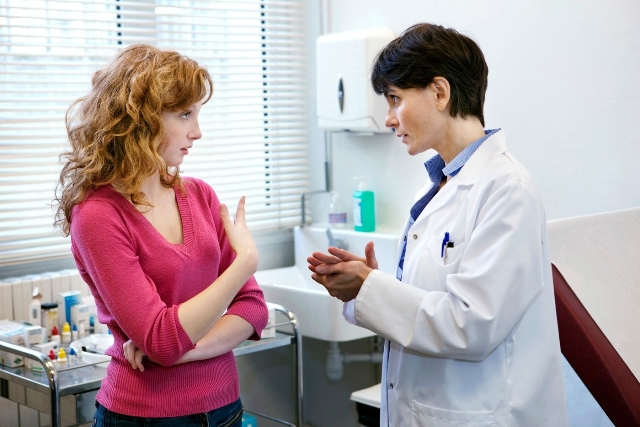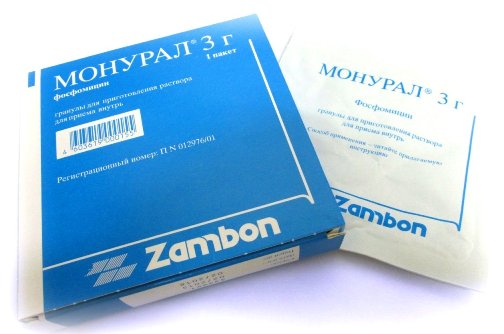News

Uncomplicated infections of lower urinary tract. New data about resistance of causative agents
8 SeptemberOn 8th of September, 2012 “VIVA PHARM” company had been organized the holding of Round table for specialists of urology on the subject “Uncomplicated infections of lower urinary tract (UIOUT). New data about resistance of causative agents. New methods to the therapy”.
The acute cystitis and urethritis are related to uncomplicated infections of lower urinary tract among patients, especially women; in the absence of some disorders in obstructive nephropathy from urinary bladder and structural changes in urinary tracts; also patients who has not any serious associated diseases. This kind of infection is good cured by chemotherapy and as a rule these patients are visiting therapeutist first. Acute uncomplicated bacterial cystitis in 80% cases is caused by E.coli and in 15% by other causative agents like: St. saprophyticus, Klebsiella spp, Proteus spp.
It was noted the necessity of interdisciplinary approach for solving problems of prevention and therapy of UIOUT, because during misdiagnosing, patients are prescribed wrong medicines, terms and scheme of treatment; and its result is very high level of recidivations and development of chronic infections, that is stable to treatment with antibiotics. Urologists, gynecologists and therapeutists are wondering - how correctly to select the therapy during UIOUT?

During selection of antibiotics for UIOUT treatment, it is necessary to take into consideration a wide range of factors. They are - spectrum and sensitivity of uropathogens, the effectiveness of antibiotics in clinical researches, tolerance, side effects, the cost and affordability of the medicine. Antibiotics have to create the high concentration in urine and in same time make the minimal side action on microflora of bowels and vagina. It is necessary to avoid the prescription of antibiotics that are characterized by bad absorption from bowels. One of main problem in UIOUT treatment is using antibiotics of systemic actions. Because, it is contributed to the growth of strain's resistance of leading causative agents and significantly limited the effectiveness of any kind antibacterial therapy.
Data that was received since 2010-2011 in Russia, Belarus and Kazakhstan, was shown the growth resistance of E.coli to antibiotics. According to data of European Association of Urology, the level of E.coli resistance to trimethoprim/sulfamethoxazole (TMP/SMX), nalidixic acid and ampicillin/ amoxicillin is exceeded in 20%. Resistance to Co-Amoxiclav, fluoroquinolones and cephalosporins is approximately in 10%. According to opinion of experts from European Association of Urology, medicines that had exceeded resistance of E.coli in 20% are not prescribed for UIOUT treatment. Medicines that had resistance from 10 to 20% are possible to consider as alternative but not as main.

Recommendations of European Association of Urology since 2006 and 2011 are much distinguished, that is caused by rapid growth of resistance of bacterium-causative agents to antibiotics. For a example in recommendation of 2006 were included such antibiotics as TMP/SMX (course – 3 days), fluoroquinolones (1-3 days), fosfomicin (1 day), pivmecillinam (3-7 days) and nitrofurantoin (5-7 days). The list of medicines that was included into last recommendations was changed. In UIOUT treatment the first choice of medicines are fosfomicin trometamol (Monural 3 g) and nitrofurans. They are not new medicines. Nitrofurans are being used already half a century and Monural is being used during 30 years. The sensitivity of E.coli to them is kept during many decades and effect of these antibiotics on normal fecal flora is stayed minimally.
Fosfomicin trometamol (Monural) – derivant of phosphonic acid, inhibitor of peptidoglucan synthesis of bacterium’s cell walls. Thanks to very high concentration in urine, it has extremely strong bactericidal action. Due to this reason, it is enough to take one dose of Monural. 99,5% of medicine is excreted through urine in invariable condition.
Epidemiologic evidence is testified that asymptomatic bacteriuria is observed at 6% of pregnant women, more frequent than acute cystitis at (1-2%) or acute pyelonephritis at (1-2,5%). Asymptomatic bacteriuria is cured during pregnancy, though many medicines are not permitted for using in that period. Such as sulfanilamides, trimethoprim, aminoglycosides, quinolones and fluoruquinolones, nitroxoline. During III trimester of pregnancy is excluded the nitrofurans. For treatment of infections of lower urinary tract at pregnant women is recommended only penicillins, cephalosporins and fosfomicin trometamol. According to data, in Russia, during antibiotics treatment of lower urinary tract infections at pregnant women is prescribed mainly fosfomicin (41,8%), because this medicine is safe. Using of 1 dose of Monural once in 10 days during 3 months is the best variant of therapy. In same time and it is often that pregnant women are prescribed medicines which are absolutely contra-indicated to them (nitroxoline, nitrofurans, fluoroquinolones); and this fact can worry.

